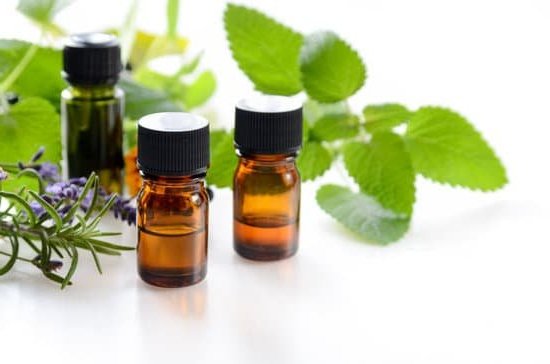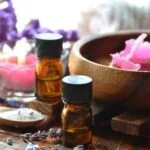Aromatherapy has gained popularity for its potential health benefits, but many skeptics wonder, “Is aromatherapy bad for your lungs?” This question arises due to the method of inhalation commonly used in aromatherapy practices. Despite this concern, aromatherapy has been used for centuries as a natural remedy to promote relaxation, reduce stress, and improve overall well-being.
Essential oils are the cornerstone of aromatherapy, extracted from plants and renowned for their therapeutic properties. These oils can be inhaled directly or diffused into the air, allowing their aromatic molecules to interact with the olfactory system and potentially affect mood and physiological responses in the body. The use of essential oils can vary depending on the specific ailment being targeted or the desired outcome, such as improving sleep quality or reducing anxiety.
While the science behind how aromatherapy works is still being studied, there is growing evidence to suggest that inhaling essential oils may have a direct impact on respiratory health. However, concerns have been raised about whether prolonged exposure to certain essential oils could harm the lungs. In the following sections, we will delve deeper into the risks and side effects associated with aromatherapy and explore safe practices for incorporating this alternative therapy into your daily routine.
What Aromatherapy Entails
Aromatherapy is a holistic healing treatment that uses natural plant extracts, known as essential oils, to promote physical and emotional well-being. These essential oils are extracted from various parts of plants through methods like distillation or cold pressing.
Each essential oil has its own unique aroma and therapeutic properties, which can be inhaled directly or diluted in carrier oils for topical application. The use of essential oils in aromatherapy is believed to have originated thousands of years ago and has been used across different cultures for its medicinal benefits.
Here are some commonly used essential oils in aromatherapy along with their benefits:
- Lavender: Known for its calming and relaxing effects, lavender essential oil is often used to reduce stress and promote better sleep.
- Peppermint: With its invigorating scent, peppermint essential oil is used to help alleviate headaches, improve focus, and soothe digestive issues.
- Tea Tree: Tea tree essential oil is popular for its antimicrobial properties and is commonly used topically to treat skin conditions like acne or fungal infections.
Despite the wide range of benefits associated with aromatherapy using essential oils, there are concerns about the potential risks it may pose to lung health. The inhalation of certain essential oils in high concentrations or for prolonged periods could potentially irritate the respiratory system. This raises the question: is aromatherapy bad for your lungs? It’s important to understand the science behind how inhalation of these oils affects the body before drawing any conclusions about its impact on lung health.
The Science Behind Aromatherapy
Aromatherapy, a therapeutic practice that involves using essential oils to promote overall well-being, has gained popularity for its potential health benefits. The term “aromatherapy” is derived from two words – “aroma,” which refers to the fragrance of essential oils, and “therapy,” which indicates the healing properties associated with these natural extracts. When inhaled, essential oils interact with the body through various pathways and can have both physiological and psychological effects.
Inhalation is one of the primary methods of using essential oils in aromatherapy. When you inhale the aroma of an essential oil, it enters your nasal passages and stimulates olfactory receptors. These receptors then send signals to the brain’s limbic system, which is responsible for regulating emotions, behavior, and memory. This direct connection between scent and brain function is why certain fragrances can evoke strong emotional responses or trigger specific memories.
While inhalation of essential oils has shown promising benefits in terms of stress relief, mood enhancement, and even respiratory support, it is important to consider the potential risks involved. One common concern that arises is whether aromatherapy is bad for your lungs.
Some studies suggest that prolonged exposure to certain essential oils or improper use (such as undiluted application or excessive diffusion) may cause respiratory irritation or exacerbate breathing conditions in sensitive individuals. It’s crucial to exercise caution and consult with a healthcare professional before incorporating aromatherapy into your daily routine, especially if you have preexisting lung issues.
| Essential Oils | Potential Effects |
|---|---|
| Eucalyptus | Respiratory support and congestion relief |
| Lavender | Calming effects on the nervous system |
| Peppermint | Enhanced focus and mental clarity |
Risks and Side Effects
Aromatherapy has gained popularity for its potential therapeutic benefits, but there are concerns about its effects on lung health. Inhalation of essential oils through methods like diffusers, steam inhalation, or direct inhalation is a common practice in aromatherapy. One of the primary concerns surrounding the use of aromatherapy is whether it can be detrimental to lung function.
Here are some risks and side effects to consider when using aromatherapy for your lungs:
- Respiratory Irritation: Some essential oils may contain volatile organic compounds that could irritate the respiratory tract when inhaled. This can lead to symptoms such as coughing, shortness of breath, or throat irritation.
- Allergic Reactions: Individuals with sensitivities or allergies to certain compounds in essential oils may experience allergic reactions when exposed to these oils through inhalation. This could manifest as sneezing, nasal congestion, or even asthma exacerbations.
- Chemical Sensitivities: People with chemical sensitivities may also react negatively to the strong odors of certain essential oils, leading to headaches, dizziness, or nausea.
It’s important to be mindful of these potential risks and side effects when incorporating aromatherapy into your wellness routine. If you experience any adverse reactions while using essential oils for aromatherapy, it is recommended to discontinue use and consult with a healthcare professional.
Precautions to Take
Aromatherapy, when practiced safely, can offer numerous benefits to one’s well-being. However, it is essential to take precautions to ensure that the use of essential oils does not pose any risks to lung health. Here are some safe practices for using aromatherapy at home to avoid potential harm.
Dilution and Proper Ventilation
One crucial precaution when using essential oils for aromatherapy is to always dilute them before applying them to the skin or inhaling them. Undiluted essential oils can be too potent and may irritate the respiratory system. Additionally, make sure to use essential oils in a well-ventilated area to prevent the buildup of strong vapors that could potentially irritate the lungs.
Choose High-Quality Essential Oils
To minimize the risk of adverse effects on lung health, it is important to select high-quality essential oils from reputable sources. Poor quality or synthetic oils may contain additives that could be harmful when inhaled. Opt for pure, organic essential oils that have been properly sourced and tested for purity.
Consult With a Healthcare Professional
If you have pre-existing respiratory conditions or concerns about whether aromatherapy is safe for your lungs, it is advisable to consult with a healthcare professional before incorporating essential oils into your routine. They can provide personalized guidance based on your individual health needs and help you determine the most suitable approach for using aromatherapy effectively and safely.
By following these precautions and safe practices for using aromatherapy at home, individuals can enjoy the potential benefits of essential oils without compromising their lung health. Remember that moderation and proper care are key when engaging in aromatherapy practices to promote overall wellness and relaxation.
Research Studies
Current Findings on Aromatherapy and Lung Health
Several research studies have explored the impact of aromatherapy on respiratory health. While some studies suggest that inhaling essential oils can potentially irritate the lungs, others indicate that when used properly, aromatherapy may actually have a positive effect on respiratory conditions. For example, a study published in Respiratory Care found that inhaling certain essential oils could help improve symptoms of bronchial asthma.
Concerns and Contradictions in Research
Despite some promising findings, there is still ongoing debate within the scientific community about the effects of aromatherapy on lung health. Some experts warn that certain essential oils, especially when used improperly or in high concentrations, can trigger allergic reactions or respiratory issues. Additionally, individuals with underlying lung conditions such as asthma or chronic obstructive pulmonary disease (COPD) should exercise caution when using aromatherapy to avoid any potential exacerbation of symptoms.
Future Directions in Aromatherapy Research
As interest in alternative therapies like aromatherapy continues to grow, there is a need for more comprehensive research to better understand its impact on respiratory health. Future studies could focus on determining safe dosages and optimal methods of inhalation to minimize any potential risks to lung function. By conducting well-designed clinical trials and observational studies, researchers can provide clearer guidance on whether aromatherapy is ultimately beneficial or harmful for lung health.
Alternative Options
Aromatherapy is a popular practice that involves using essential oils to promote relaxation, alleviate stress, and improve overall well-being. While inhaling essential oils is the most common method of enjoying their benefits, there are alternative options for those concerned about potential risks to lung health. Non-inhalation methods of using essential oils can provide similar benefits without direct exposure to the respiratory system.
One alternative option for utilizing essential oils is topical application. Diluting essential oils in a carrier oil like coconut or almond oil and applying them to the skin can still allow for absorption into the bloodstream. This method is particularly useful for targeting specific areas of concern, such as muscle tension or skin conditions. Additionally, using essential oils in massage therapy can enhance relaxation and ease discomfort without the need for inhalation.
Another non-inhalation method of using essential oils is through diffusion. A diffuser disperses the aromatic molecules of essential oils into the air, allowing for indirect inhalation without direct contact with the lungs. This method not only creates a pleasant ambiance but also provides therapeutic benefits by promoting relaxation or boosting mood. Diffusers come in a variety of types, including ultrasonic, nebulizing, and heat-based options, catering to individual preferences and needs.
| Non-Inhalation Method | Description |
|---|---|
| Topical Application | Diluting essential oils in carrier oil and applying to skin for targeted benefits. |
| Diffusion | Dispersing essential oil molecules into the air via diffuser for indirect inhalation. |
Conclusion
In conclusion, the question “Is aromatherapy bad for your lungs?” is one that requires a nuanced answer. While there are risks and potential side effects associated with inhaling essential oils, when practiced safely and in moderation, aromatherapy can provide numerous benefits for overall well-being. Understanding the science behind how inhalation affects the body is key to using aromatherapy effectively without harming your respiratory health.
It is important to be aware of the precautions to take when using aromatherapy at home to protect your lungs. Diluting essential oils properly, avoiding direct inhalation, and using a diffuser with proper ventilation are essential steps to minimize any potential risks. Additionally, consulting with a healthcare provider before starting an aromatherapy regimen can help ensure that it is safe for you, especially if you have underlying respiratory conditions.
While some research studies have shown positive effects of aromatherapy on respiratory health, more evidence is needed to fully understand its impact. Exploring alternative options such as topical application or using essential oils in baths can provide benefits without the risks associated with inhalation.
Ultimately, the verdict on whether aromatherapy is bad for your lungs depends on how it is practiced and the individual’s specific health needs. By educating yourself and following safe practices, you can enjoy the potential benefits of aromatherapy while protecting your respiratory system.
Frequently Asked Questions
Is It Bad to Inhale Aromatherapy?
Inhaling aromatherapy is generally safe when done in moderation and using high-quality essential oils. However, prolonged exposure to concentrated essential oils may irritate the respiratory system or trigger allergies in some individuals.
Can Essential Oils Affect Your Lungs?
Essential oils can potentially affect your lungs if inhaled excessively or if you have underlying respiratory conditions such as asthma or COPD. Some essential oils contain compounds that can irritate the airways, leading to breathing difficulties or allergic reactions.
Are Fragrance Oils Safe for Lungs?
Fragrance oils, which are synthetic and often contain chemicals not found in natural essential oils, may not be as safe for the lungs compared to pure essential oils. The artificial ingredients in fragrance oils can be harsh on the respiratory system, causing irritation or discomfort.

Are you looking for a natural way to improve your health and wellbeing?
If so, aromatherapy may be the answer for you.




